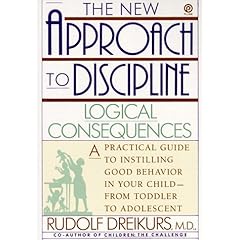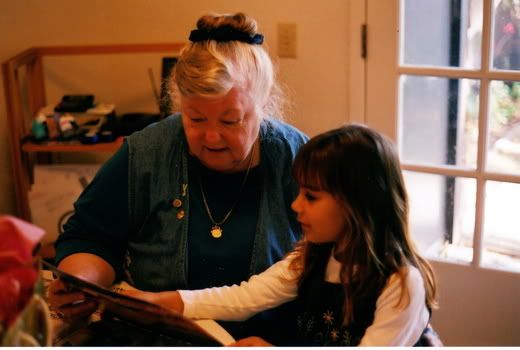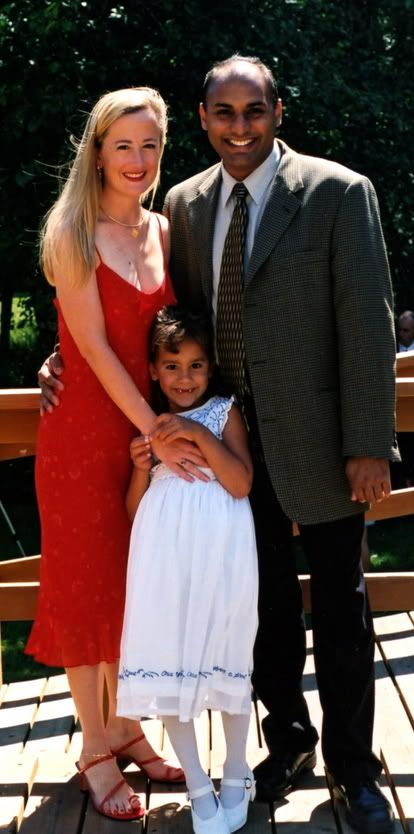
As a parent, getting the chore thing right was vitally important to me. There was so much tension as I was growing up around chores, as mentioned in
Melmac Dishes and
In A Nutshell II and
IV-a and
Binocular Vision that I had no intention of reliving that from the other perspective. It had been bad enough that I had left home at 16 to live with my great-aunt and Forrest had left home at 17 and worked his way through his senior year of high school. So, when Richard was still crawling around the floor I started researching this subject. I majored in child development and later went on to get my masters in Montessori education, and I read everything I could get my hands on, observed parents and children I knew, and thought about it a lot. The result was a coherent theory that I then continued to test, refine, and build on.
Children are motivated by two positive needs. They need to be loved and appreciated for who they are, even when they are naughty. And they need to contribute to the family. Children who don’t contribute, who have no chores, who aren’t allowed to help, feel insecure. This lack can lead to bad behavior, as children try to get undeserved attention to compensate for their fear that they don’t actually deserve any.
There are a number of goals to having a child do chores. One is the need to contribute. Another is the need that parents have for help a family is a unit that relies on its members -- Julie and Richard knew that our family could not get along without their help. What they did was important to me.
Another goal is teaching children skills for when they are grown. Whereas I learned a limited number of "girl" chores, we started with a list of things that have to be done around the house, from making beds and putting clean clothes away to planning meals, shopping, cooking, and occasional maintenance items. Over the years both kids had the opportunity to learn and be responsible for each skill on the list. When I was growing up, once you got a chore it was yours until you left home. My kids moved on to more complex and interesting things.

Children try to help at a very young age. When Richard was about nine months old, Daddy asked him to bring his empty bottle to the kitchen, and Richard walked around three walls of the room, holding on, got the bottle, and walked it back the same path. He was so proud to be able to help. When Maya was 15 months, she regularly helped Julie unload the silverware from the dish washer. If we don’t let children help us at this age, we are setting our lives up to fight about chores in later years. If you think about it, there is almost always some part of the task your child can help you with. (I have a friend who let her border collie carry in the meat, and he never pierced the shrink wrap. If a dog can do it, so can a child.)
And if you tell him he is too little or too young, you undercut his self-confidence.
Just because a little one helps, it doesn’t mean he is ready to have that task assigned. Until the child is about five, it should always be voluntary. You can certainly ask, but you mustn’t be disappointed if your child has something more important right now.
It is also important to recognize that little people can’t meet adult standards. Richard decided at three that he wanted to make his own bed. And he did it himself from then on. I would have insulted him no end had I stepped in and corrected it. Every week when I changed the sheets, we would do it together, which gave him ample instruction in how to do it. For a long time, he slept in a pretty messy little nest, but he was proud of it.

One thing I remember resenting about my chores when I was a kid (among a myriad of things I resented about them) was coming home from school and being expected to do chores while everyone else was enjoying themselves. I didn’t like being off on my own working. And I well remember visiting my Aunt Marvel in the summer and how she and her two daughters and I would clean the house together and absolutely love it. Seeing how fast we could get done to go out and play – all of us, Aunt Marvel included. Children enjoy helping their parents. And when my kids came along, that is what we did for a long time. Clean up common areas before we went to bed, dishes after eating, and the main chores on Saturday morning, followed by a family outing.
I would never pay a child to do their regular chores. No one pays me to cook dinner or clean the bathroom or change the cat box. And keeping their own bedroom clean is self care, like brushing their teeth and taking a bath. It doesn’t count as a contribution to the family. Chores benefit everyone.
Since I didn’t pay my kids to do their chores, I couldn’t’ take their allowance away if they didn’t. So, I had to fall back on logical consequences. When they didn’t put their clothes in the hamper, I didn’t wash them. When Richard didn’t put his dishes in the dishwasher, I put them in the refrigerator overnight* and fed him off them for breakfast.**
I always tried to let the kids have a say in which chores and/or when they did them***. The more input the child has, the more likely he is to go along with the program.
* He had to learn, but I didn’t want him to die of salmonella.
** One reason I have more Richard discipline stories is that Julie would watch and see what happened when he did something. If there was a negative consequence, she didn’t repeat it. This was true with natural consequences as well as logical ones. What good, she asked, is an older brother if you can’t learn from his pain1
*** That was, of course, ahead of time. Deciding when we were waiting for the chore to be done that tomorrow would be good enough was not an option.
 There is an experiment they do with young children*. The experimenter shows a closed Sweeties** box to the child and asks what is in it. The child answers, "Sweeties." Then the experimenter shows the child that the box is full of paper clips and asks the child, "Before we opened the box, what did you think was in it?" And the young child answers, "Paper clips." People used to think that answers like this meant the child was lying. However, that is not the case. Up to about three or four (I wish I could remember this more exactly), a child is not able to think about thinking. Which means the child can't think about having been wrong about what she thought. So, she honestly can't remember thinking that there were Sweeties in that box, since now she knows that there are paper clips. You get the same answer for the same reason if you ask the child what someone else will think is in the box. Again, if the child still thinks it is Sweeties, that's the answer you get. If the child knows it is paper clips, that is the answer you get.
There is an experiment they do with young children*. The experimenter shows a closed Sweeties** box to the child and asks what is in it. The child answers, "Sweeties." Then the experimenter shows the child that the box is full of paper clips and asks the child, "Before we opened the box, what did you think was in it?" And the young child answers, "Paper clips." People used to think that answers like this meant the child was lying. However, that is not the case. Up to about three or four (I wish I could remember this more exactly), a child is not able to think about thinking. Which means the child can't think about having been wrong about what she thought. So, she honestly can't remember thinking that there were Sweeties in that box, since now she knows that there are paper clips. You get the same answer for the same reason if you ask the child what someone else will think is in the box. Again, if the child still thinks it is Sweeties, that's the answer you get. If the child knows it is paper clips, that is the answer you get.























